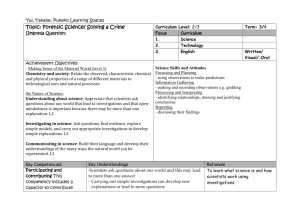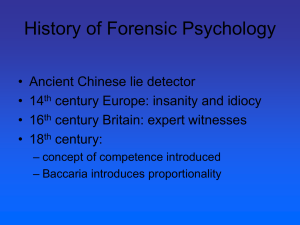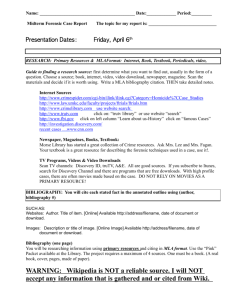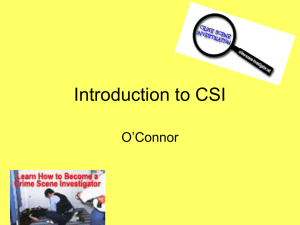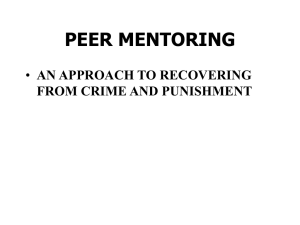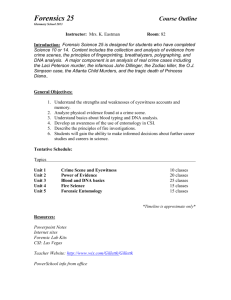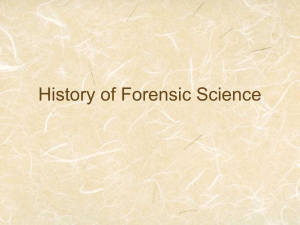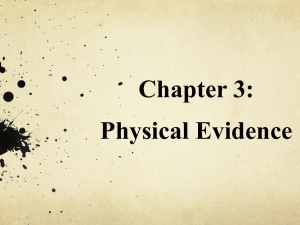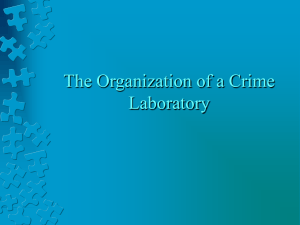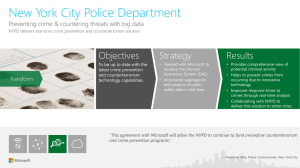An Intelligence Proccess-driven Knowledge Extraction Framework for
advertisement
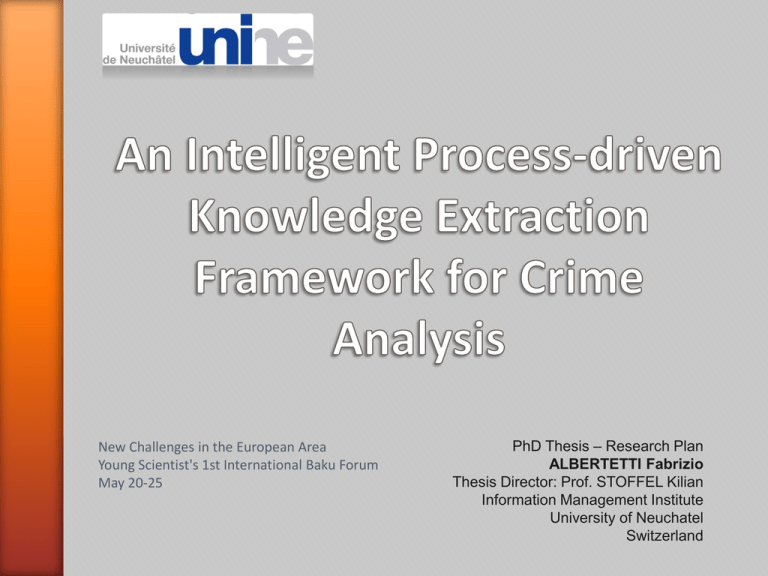
New Challenges in the European Area Young Scientist's 1st International Baku Forum May 20-25 PhD Thesis – Research Plan ALBERTETTI Fabrizio Thesis Director: Prof. STOFFEL Kilian Information Management Institute University of Neuchatel Switzerland Context Objectives Research Challenges 2 » Interdisciplinary project: ˃ Computational + Information Management Institute, University of Neuchatel ˃ Forensics + Institut de Police Scientifique, University of Lausanne » Supported by the Swiss National Science Foundation (SNSF) » 5 years project (?) – Started in Sept. 2011 3 4 » E.g., the routine activity approach (Cohen & Felson, 1979) Figure: Routine Activity (popcenter.org) 5 "Crime analysis is the systematic study of crime and disorder problems as well as other police-related issues—including sociodemographic, spatial, and temporal factors—to assist the police in criminal apprehension, crime and disorder reduction, crime prevention, and evaluation." (Boba, 2005) 6 "Crime analysis is the systematic study of crime and disorder problems as well as other police-related issues—including sociodemographic, spatial, and temporal factors—to assist the police in criminal apprehension, crime and disorder reduction, crime prevention, and evaluation." (Boba, 2005) 7 » The chain of events in crime prevention: Prevention Proactivity Predictability Patterns From patterns to prevention (Ratcliffe, 2009) Computational Forensics ! Discovering Forensic Knowledge 8 » To develop a framework : • For conducting analyses • Driven by processes (using domain knowledge) • Intelligent (assessing the results) • Extracting knowledge from forensic data 9 » What is the nature of forensic data? ˃ Uncertain ˃ Incomplete ˃ Inaccurate » Why? ˃ Because it is based on hypotheses and conjectures ˃ Because it stems mainly from latent marks ˃ Because it reflects the effects and not the causes (abduction) 10 Challenges: » To conduct analyses and perform deduction/reasoning with partial knowledge, uncertainties and conjectures » To integrate domain intelligence for providing practical and consistent results » To conduct analyses with a holistic view of the macro process, i.e. combining several mining outcomes based on crime analysis processes 11 DOMAINDRIVEN DATA MINING KNOWLEDGE REPRESENTATION COMPUTATIONAL FORENSIC FRAMEWORK FUZZY LOGIC FORENSIC SCIENCE 12 » Computational forensics is still an emerging research area » Only a combination of several domains can answer crime analysis questions 13 PhD Thesis – Research Plan ALBERTETTI Fabrizio Thesis Director: Prof. STOFFEL Kilian Information Management Institute University of Neuchatel Switzerland * This project is supported by the Swiss National Science Foundation
